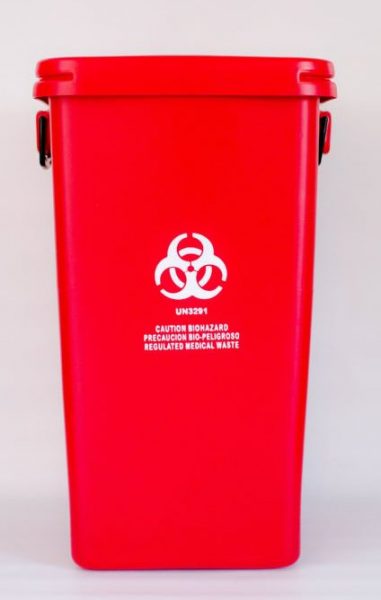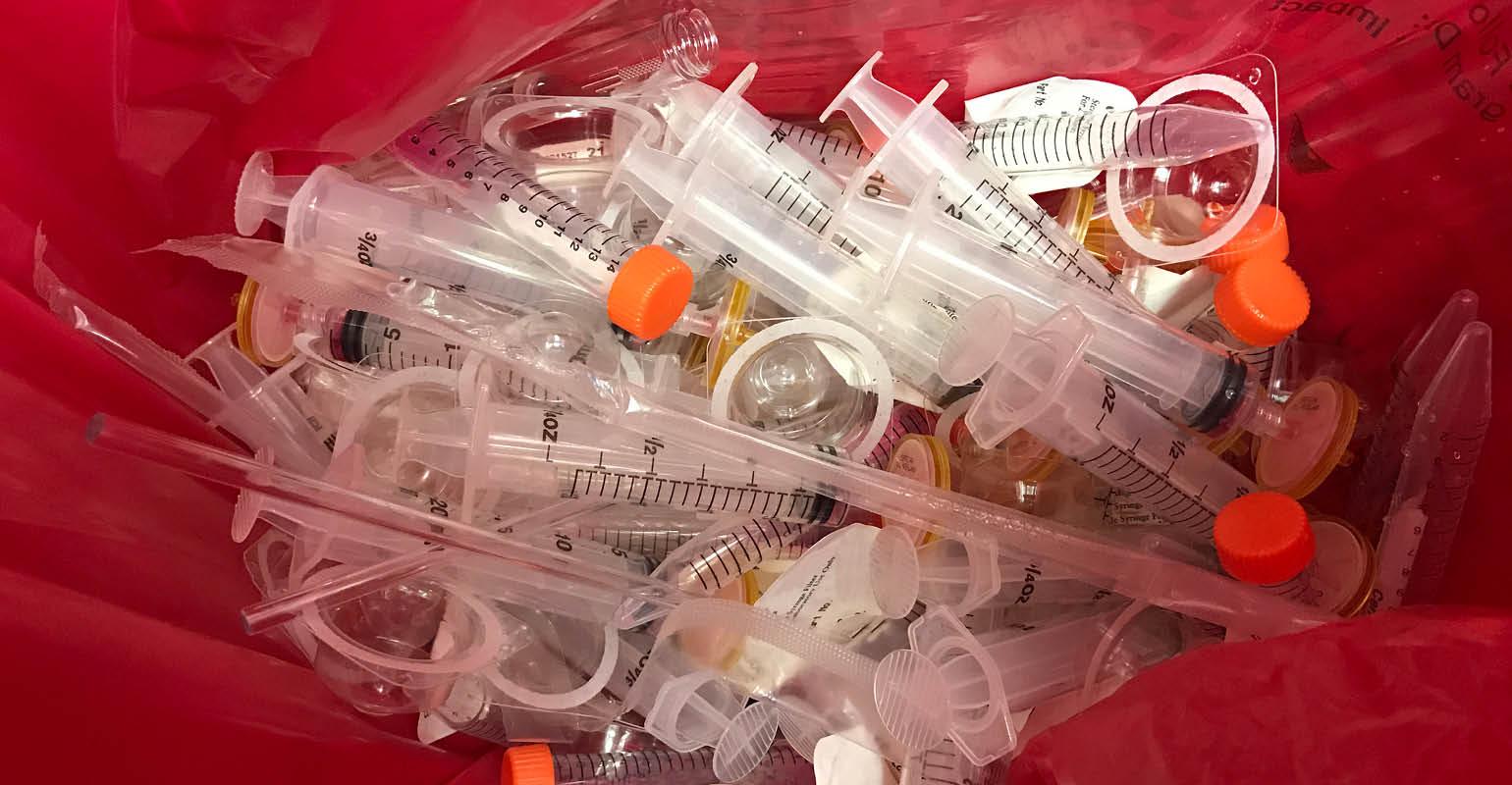Past Cleanup: Ensuring Safety with Specialist Medical Waste Removal
Past Cleanup: Ensuring Safety with Specialist Medical Waste Removal
Blog Article
Stay Ahead of Rules: Professional Recommendations on Medical Waste Disposal
In a world where the medical care industry is regularly progressing, it is vital for clinical facilities to remain in advance of guidelines when it comes to the correct disposal of medical waste. From recognizing the different classifications of clinical waste to executing the appropriate collection and partition approaches, this conversation will provide important understandings and actionable pointers to aid facilities remain ahead of regulations in the ever-changing landscape of clinical waste disposal.
Understanding Clinical Waste Categories
Comprehending medical waste groups is necessary for correct disposal and administration in medical care centers. Clinical waste describes any kind of waste generated by healthcare activities that may posture a danger to public wellness or the environment. It is essential to categorize clinical waste precisely to guarantee its safe handling, treatment, disposal, and transportation.
There are a number of classifications of medical waste that health care facilities need to be accustomed to. The most typical groups include infectious waste, pathological waste, sharps waste, pharmaceutical waste, and chemical waste. Each classification has details standards and guidelines for its appropriate administration and disposal.
Pathological waste refers to human tissues, organs, or body components that call for special handling and disposal. Drug waste comprises ended, extra, or polluted medicines that need cautious handling and disposal.
Remaining Up-To-Date With Regulatory Changes
Staying current with governing adjustments is important for healthcare centers to make certain compliance and appropriate monitoring of clinical garbage disposal. medical waste removal service. With regulations constantly evolving, it is necessary for healthcare centers to stay current to avoid fines, fines, and potential injury to the setting and public health
To remain ahead of regulatory changes, health care centers should develop a system for monitoring and monitoring updates. This can be done by subscribing to regulatory e-newsletters, attending meetings and workshops, and proactively taking part in industry associations. Additionally, centers should mark an employee or team responsible for staying educated and disseminating details to relevant stakeholders.
Regular communication with regulative agencies is likewise vital. Healthcare facilities should develop relationships with regional, state, and federal companies to ensure they understand any adjustments in policies that might influence their waste administration practices. This can be done via routine meetings, participation in public remark durations, and positive interaction with governing companies.
Furthermore, medical care facilities need to consider partnering with waste administration business that specialize in medical waste disposal (medical waste disposal services with WasteX). These firms are usually well-versed in the most up to date laws and can provide assistance and support to ensure compliance
Carrying Out Proper Collection and Partition Approaches
To properly take care of medical waste disposal, healthcare centers must develop proper collection and segregation techniques based on governing guidelines. Executing these approaches guarantees the safe handling and disposal of potentially dangerous products, shields the atmosphere, and minimizes the danger of injuries and infections to healthcare workers and the general public.
Appropriate collection and segregation methods entail using marked containers and identifying systems. Medical care facilities need to supply clearly labeled containers for various kinds of medical waste, such as sharps, infectious waste, pharmaceutical waste, and non-hazardous waste. These containers need to be color-coded and clearly marked to stay clear of complication and promote very easy recognition.
In addition, healthcare facilities should train their team on the proper procedures for collecting and segregating clinical waste. This includes informing them on the different sorts of waste, the appropriate containers to make use of, and the value of following laws and standards. Normal training sessions and correspondence course should be carried out to make sure that employee continue to be current on best practices.
Furthermore, health care centers should establish a system for routine collection and disposal of medical waste. This may involve partnering with certified waste administration companies that focus on clinical garbage disposal. These business will certainly make certain that the gathered waste is delivered and thrown away in compliance with regulative needs.
Picking the Right Disposal Methods

Incineration is one of the most usual and reliable methods for dealing with certain sorts of medical waste, such as pathological waste and sharps. It includes the regulated burning of waste at heats, decreasing it to ash. However, incineration can launch dangerous pollutants into the air and add to air pollution.

Chemical treatment includes the usage of chemicals to decontaminate and counteract the waste. Microwave therapy makes use of microwave power to heat and disinfect the waste.
Guaranteeing Compliance Via Documentation and Training
After meticulously thinking about the appropriate disposal methods for clinical waste, healthcare centers need to guarantee compliance with policies and reduce ecological influence by executing reliable documents and training procedures. This action is important in keeping a sustainable and safe environment for both healthcare employees and the public.

Health care workers that take care of clinical waste must obtain proper training on waste segregation, handling, and disposal procedures. By supplying detailed training, medical care facilities can click for source encourage their personnel to make enlightened choices and decrease the risk of incorrect waste disposal.
Conclusion
Finally, remaining ahead of laws in clinical waste disposal is critical for healthcare centers. medical waste removal services. Understanding the various classifications of medical waste, staying updated with regulative modifications, applying proper collection and segregation methods, picking the suitable disposal approaches, and making sure conformity via documents and training are all necessary steps. By adhering to these guidelines, healthcare companies can successfully dispose and take care of of medical waste in a risk-free and responsible fashion
From recognizing the different categories of clinical waste to executing the appropriate collection and segregation methods, this discussion will give useful understandings and actionable pointers to help centers remain in advance of laws in the ever-changing landscape of clinical waste disposal. - medical waste disposal services with WasteX
The most common categories include contagious waste, pathological waste, sharps waste, pharmaceutical waste, and chemical waste. Healthcare centers ought to supply plainly labeled containers for different kinds of medical waste, such as sharps, contagious waste, pharmaceutical waste, and non-hazardous waste. Healthcare facilities must establish a detailed system to record and track all elements of clinical waste disposal, consisting of types of waste generated, quantities, and disposal methods used. Medical care workers who take care of medical waste should get suitable training on waste partition, handling, and disposal treatments.
Report this page